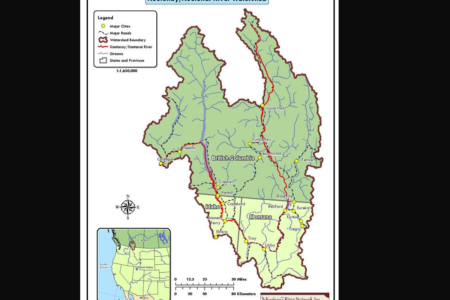Water Issues Coming in, Water Issues Going Out
With a lot of talk around town about our watershed and water coming into Rossland, discussion flipped to the downhill side of the equation Tuesday evening as the matter of our waste water came before council.
A letter was circulated to councillors outlining Trail’s recommendations for a reformed regional agreement. Recommendations were broken down into three areas and included moving to a flow based system for apportioning costs between the three municipalities (Rossland, Warfield and Trail) involved, redefining what infrastructure costs are regional responsibilities or the individual municipality’s expense, and a new governance system based around whoever pays the most into the system having the most votes.
The City of Trail has requested that Rossland council respond with their thoughts on the recommendations before a meeting scheduled for Oct 22nd.
The current cost breakdown to operate the system is a three way share with Trail paying 69% of the costs, Rossland paying 21% and Warfield 10%. Rivervale and Oasis also use the system but are not participating partners; rather they pay a contracted fee to use the service.
Dividing the discussion into three sections for each recommendation Councillor McLellan began the discussion stating, “I think it’s something that should have been looked at years ago. I think we should be paying more. When we entered into the deal Trail had something like 12,000 people and Rossland only 3,000.I think if we are being honest we are getting a heck of a deal. Charging by flows would be more of a user pay system, so I would have no problem going to a flow based system even though it would likely cost Rossland a little bit more money.”
Council agreed in general terms that going to a flow-based system may be the best option but had a number of concerns including infiltration into the system and having to pay for that as part of our flow.
Another concern was how flow rates would be determined. Currently there are three flow measuring stations along the pipeline. Rossland’s flow would be measured at the flow meter just above Warfield, Warfield’s would be measured at a meter just above the gulch heading into Trail, and Trail would pay based on the readings at the meter at the treatment plant.
City staff added that currently there is no reliable data on what Rossland’s sewer flow rates are and that we can’t think about a flow based system until the city has an idea what the flow rates are.
City Engineer Mike Thomas explained, “Once we have a year’s worth of data I think it’s worth getting into this discussion, but until then it shouldn’t be done. You can’t just base it on spring flows when there is a lot of infiltration into the system and you shouldn’t just base it on summer flows so I think it has to be looked at over a full year.”
Councillor McLellan wrapped up the discussion on flow rates with his thoughts on the situation. “Trail is concerned that they are paying the brunt of the bill. I recognize that they are paying the brunt of the bill, and I think the current formula is very unfair to Trail. Their population is around 7200 now and ours is half of that and yet they are paying 69% of the bill.”
The other big issue on the table was around upgrading and adding new infrastructure to the regional system. The recommendations are that any new infrastructure or upgrades will be the responsibility of the individual municipalities and that regular maintenance and repairs will remain the responsibility of the regional agreement. This would leave Rossland responsible for any upgrades or expansion costs of the system for the pipeline from Warfield up. Rossland and Warfield would also share any new infrastructure costs for the pipeline from Warfield down to Trail.
Mike Thomas questioned why Rossland would go to this system given that the sewer line is regional infrastructure so should be maintained by the region. He was also concerned about how new infrastructure would be defined if Rossland is able to conserve and not require an expansion of the line down the road.
“What happens when if Rossland is able to maintain its sewer flows at this level and this pipe fails in twenty years’ time? It doesn’t need upsizing; it just needs replacing. Who’s going to pay for it?”
In general council agreed that the new method of defining what is and what is not regional infrastructure proposed by Trail would be a bad idea for Rossland to endorse. Summing up his thoughts on the matter, Mayor Smith noted, “It’s nice of them to ask but I think that it’s neither logical nor fair.”
The final recommendation was to realign the governance of the regional system to one where the user that pays the most into the system would have the most votes at the table. Currently, the voting system is based on population with Trail getting three votes, Rossland two and Warfield one. Anyone can see from those numbers the difficulty in negotiating changes.
Several ideas were presented as alternative options including the potential to bring Teck into the partnership as a voting member as they are a major user of the system. Rossland city staff favoured a one member, one vote system as another potential governance model.
Wrapping up the discussion, Mayor Smith reminded council that this is likely to be a long and protracted process, and that if there are stumbling blocks during the initial meetings a mediation and/or arbitration situation will be likely—a matter for the next council to handle.
Councillor McLellan will be taking council’s message back to Trail. “So the message I’ll carry forth is that there is not really an appetite around this table for us to open up the SLP’s at this time and if they want to pursue it and we get into mediation than we’ll have to present our arguments and go from there.”























